- Expert advice/
- Wedding planning 101/
- Legal/
- Virginia Marriage Laws
- Legal
Virginia Marriage Laws
Rich, historical Virginia is a stunning place to celebrate your marriage. Be sure to check out Zola’s guide to Virginia marriage laws.
Last updated February 5, 2024
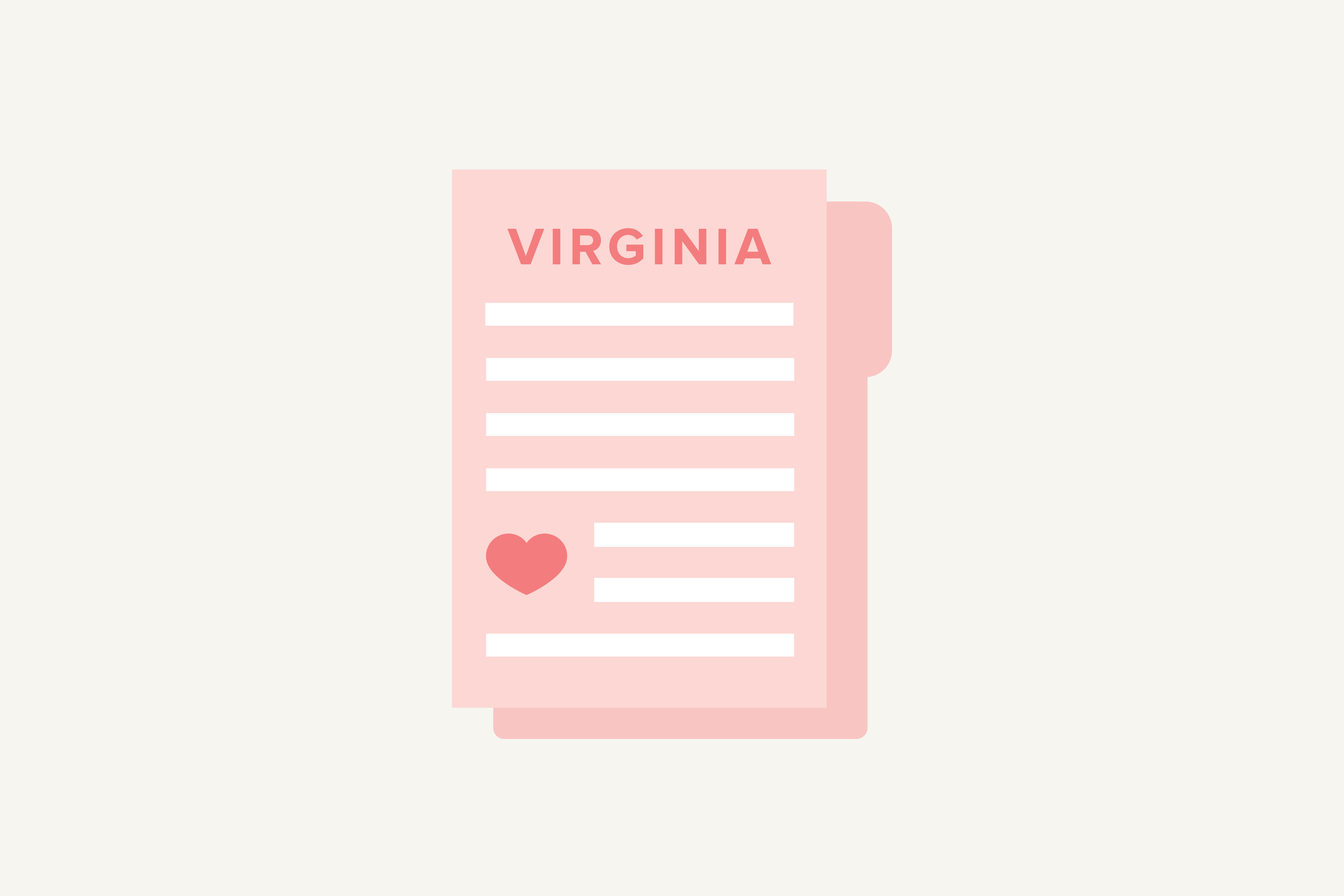
The First Look ✨
- To get married in Virginia, you will need to obtain a marriage license. You can fill out a pre-application online and then make a virtual or in person appointment to receive your license.
- There is no blood test, residency, or waiting period required for a Virginia marriage license. The marriage license expires after 60 days and costs $30.
- You’ll need to make sure your officiant is legally authorized to perform your ceremony. Virginia does not require any witnesses.
- After the ceremony, the officiant should return the signed marriage license to the clerk’s office within five days.
Not everything about the wedding planning process is lace and buttercream. Since marriage is a legal status, there are laws and regulations surrounding the process of getting married. Read on to familiarize yourself with the Virginia marriage laws, from how to get a marriage license to how to change your name, as well as everything else you need to know to plan your big day.
Marriage Laws and Requirements in Virginia
Each state has its own patchwork of rules and regulations, which can make the process of getting married a headache. Whether you are new to Virginia or born and bred in Old Dominion, the marriage laws and requirements can be complex.
Here’s a quick breakdown of some common terminology in the world of marriage laws and licenses:
-
Marriage License: A marriage license is a legal document that you obtain before the wedding and sign after the ceremony. The marriage license serves as your application to legally get married.
-
Marriage Certificate: After you return your signed marriage license, the government issues a marriage certificate, which proves that you are legally married.
-
Marriage License Fees: There is generally an administrative fee to receive a marriage license. In Virginia, that fee is $30.
-
Waiting Periods: Some states institute waiting periods that prevent you from getting married for a certain number of days or hours after receiving your marriage license. Virginia has no waiting period. That means that you can have your marriage ceremony and legally get married as soon as you receive the license.
-
Blood Tests: Certain states require a blood test to receive a marriage license. These blood tests check for venereal diseases and sometimes genetic disorders. Virginia, however, does not require blood tests to obtain marriage licenses.
-
Residency Requirements: Residency requirements refer to whether or not non-residents can legally get married in a certain state. Virginia has no residency requirements.
-
Witnesses: Virginia, unlike many states, does not require witnesses to make a marriage legal.
-
Legal Age of Marriage: The minimum age of marriage in Virginia is 18 years old. The only exception is minors who have been emancipated by court order. These emancipated minors must provide a certified copy of their emancipation court order with their marriage license application.
-
Officiant Qualifications: The officiant is the person who will perform your marriage ceremony and sign your marriage license. Virginia has complicated officiant rules that we will discuss further in the next section. It’s important that your officiant is legally qualified to perform the ceremony. Illegally performing a marriage ceremony is a crime.
Virginia’s Marriage License Application Process
As you may have gathered, a marriage license is the under-appreciated hero of the marriage planning process. Take away the dresses, the flowers, the guests—at the end of the day, the marriage license is probably the most important item on your wedding to-do list.
That’s why we’ve compiled this (somewhat) quick and easy breakdown of everything you need to know to get a marriage license in Virginia.
Online Marriage License Pre-Application
Applicants should first submit an online marriage license pre-application before they schedule a virtual or in-person appointment to obtain their marriage license. Here are the steps for the pre-application:
-
Select your preferred designation on the marriage license for each spouse: the options are groom, bride, spouse 1, or spouse 2. Any combination of these designations can be selected.
-
Check a box to certify both partners are at least 18 years old.
-
Provide the personal information for the first spouse.
-
Confirm whether the first spouse has previously been married.
-
Provide parental information for the first spouse.
-
Provide the same information for the second spouse.
-
Enter email address(es) to receive a confirmation message.
After you click submit, you’ll receive a confirmation code and instructions for scheduling either a virtual or in-person appointment.
Documents Required
At the appointment to receive your marriage license, you’ll need:
- Both partners’ Social Security numbers
- Valid photo identification for both partners
- The online marriage license pre-application confirmation
Fees
As we mentioned earlier, the fee to receive your marriage license is $30. In Fairfax County, this fee is payable by credit card, including Visa or MasterCard. MasterCard includes an additional four percent processing fee. Cash is only accepted if you obtain your license in person.
Expiration of License
Although there is no waiting period for a Virginia marriage license, it is not valid indefinitely. The marriage ceremony must be performed in Virginia and within 60 calendar days.
Officiant Qualifications
In Virginia, the question of who can officiate a wedding is a little more complicated than you might prefer, but don’t worry, we’ve got you covered. Do yourself a favor, and pay attention during this section. Knowingly performing a marriage ceremony without a lawful license or authorization can result in up to a year of jail time and up to a $500 penalty.
First of all, who can officiate a wedding without authorization?
- Active, senior, or retired federal judge who is a resident
- Active, senior, or retired federal justice who is a resident
- Current member of the Virginia General Assembly
- Governor of Virginia
- Lieutenant Governor of Virginia
- Attorney General of Virginia
Don’t have the governor at your disposal to officiate your wedding? Here are three other groups that can officiate Virginia weddings.
Local Clergy
Local clergy members can receive authorization to perform a marriage by applying in the county where their house of worship or religious body is located. These authorizations are by appointment only and require a $26 filing fee and one of the following:
- Copy of their license
- Certificate of ordination
- Documentation appointing them to their clerical position
They must also provide proof of their position within their religious organization. This document must be:
- From someone else in a position of authority in the organization
- On the organization’s letterhead
Civil Celebrant
A civil celebrant is a non-religious marriage officiant. Virginia does not allow non-residents who are not clergy to perform weddings. Civil celebrants who are Virginia residents should apply in the county where they reside. The application requires:
- $56 filing fee
- One-Time Ceremony Civil Celebrant Petition document
- Two letters of reference from county residents
After the county approves the application, the civil celebrant will need to post a $500 bond prior to the ceremony either via check or money order to the “Clerk of the Circuit Court.” Once they return the marriage license, they should bring a “request for return of bond” document form to the Public Services Division of the Clerk’s Office.
It is also possible to become a permanent civil celebrant within the state of Virginia. Individuals should submit a letter to their county clerk describing their interest in becoming a permanent Civil Celebrant and providing their email address and daytime phone number. The Clerk of the Circuit Court will review the letter and contact the individual to provide further information.
Out-of-State Minister
Out-of-state ministers should apply in the county where the marriage ceremony will take place. They will need to submit:
- $86 filing fee
- Out-of-State Minister Petition document
- Copy of their certificate of ordination
- Proof on official church letterhead of their position as a minister within a religious organization
It’s very important for couples to know that Virginia does not recognize any online ordinations such as The Universal Life Church.
Make sure to budget for these various filing fees in your wedding plan.
Registering the Marriage License
After the ceremony, your officiant should return the completed marriage license to the clerk’s office within five days. Once the county has your completed marriage license, you can order certified copies for $2.50 each.
These certified copies will be necessary for any instance that requires proof of marriage, including when visiting the DMV, Social Security, Immigration, and when receiving shared benefits.
Special Marriage Timing Considerations in Virginia
Ready to dive further into the world of Virginia marriage laws? Timing is everything, especially when it comes to weddings. Consequently, you’ll want to start the marriage application process as soon as possible.
By that, we mean exactly what you’re doing now. Familiarize yourself with Virginia’s marriage laws, and make sure you have everything you need to actually file an application for a marriage license. Also look for your officiant sooner rather than later, so you can ensure they are authorized on your big day.
Since Virginia marriage licenses are only valid for 60 days, you’ll want to actually apply and obtain the license within one to two months of your wedding day. Because there is no waiting period, you don’t have to worry about applying too close to your ceremony, however, it’s always better to get things done on the earlier side in case of bureaucratic red tape and slow downs. Just don’t apply for the marriage license more than 60 days before your ceremony.
Finally, before you disappear into newlywed bliss, make sure that your officiant will return the marriage license within five days after the ceremony.
Frequently Asked Questions About Getting Married in Virginia
Now that you're starting to understand the legal process behind marriage in Virginia, you probably have quite a few questions and clarifications. We’ve got a rundown of the top FAQs about Virginia marriage laws.
Does Virginia Recognize Common Law Marriage?
No, Virginia marriage laws do not recognize common law marriages. A common law marriage is an agreement between two adults who consider themselves to be married and hold themselves to that agreement without any formal ceremony or license. However, Virginia will recognize common law marriages if:
- The common law marriage was entered into in a state where they are valid and
- The couple would have been eligible to marry under Virginia Law.
Can My Marriage Be Performed by the Clerk of the Circuit Court?
Yes, usually the Clerk of the Circuit Court can perform marriages. This adds an additional $50 fee in addition to the cost of the license.
What If My Marriage License Expires Before I Use It?
Unused and expired licenses need to be returned to the Circuit Court.
Where Can I Get a Marriage License in Virginia?
You can obtain a marriage license from the Office of the Clerk of Circuit Court in any city or county in Virginia. These offices are generally open Monday through Friday 8:00 a.m to 4:00 p.m., except on holidays.
Can I Obtain a Marriage License By Mail?
During COVID, Virginia began issuing marriage licenses by mail. It’s unclear whether this practice will continue. To apply, couples should submit a notarized affidavit, an application, and a $30 cashier’s check payable to the Clerk of Circuit Court.
Who Can’t Get Married in Virginia?
Virginia prohibits the following categories of marriage:
-
A marriage if either of the partners were married and are not yet legally divorced.
-
A marriage between an ancestor and descendant, brother and sister, uncle and niece, and aunt and nephew—regardless of if the relationship is by half blood, whole blood, or adoption.
-
A marriage where either partner lacks the mental or physical capacity to consent to the union.
-
Common law marriages entered into in Virginia or other jurisdictions that do not permit them for residents.
What if I Need a Translator?
If either you or your partner requires a translator, you will need to bring your own to receive your marriage license. Virginia does not allow partners to translate for each other.
How Can I Obtain Certified Copies of My Marriage Record?
Certified copies of marriage records are available in person or by mail from the Circuit Court Clerk’s office that issued the marriage license. Each copy is $2.50. You can also secure copies from the Virginia Division of Vital Records in Richmond.
The DMV also provides copies, however, there may be a delay of several months after your wedding before the DMV’s records update. You must provide the full names of both spouses, as well as the date and place of marriage to receive these copies.
Are Marriage Applications Public Records?
Yes, both marriage applications and marriage certificates are public records that are available at the office of the Clerk of Circuit Court in the county where they were filed.
Does My Maiden Name Automatically Change After Marriage?
No, your maiden name will not automatically change after marriage. You must go through the process to change your name after marriage.
How Can I Change My Maiden Name or Hyphenate My Surname?
Virginia provides detailed instructions for how to change your name in all the appropriate places:
-
Social Security: You can change your name with the Social Security office in office or by mail by providing a completed copy of Social Security Administration Form SS-5 and a certified copy of your marriage record.
-
Driver’s License: To change your name on your driver’s license, visit the DMV with your driver’s license, Social Security card, and a certified copy of your marriage license.
-
Voter Registration: Contact the Registrar’s Office to notify them of your name change.
-
Personal Property: Contact the Commission of the Revenue’s Office within 30 days to notify them.
-
Address Changes: For address changes, you should notify the Registrar’s Office, the Commissioner of the Revenue’s Office, the U.S. Postal Service, and the Internal Revenue Service using IRS form 8822.
What If I Have Been Previously Married?
If you’ve been previously married, you will need to get legally divorced or widowed before you can get married again in Virginia. To obtain your marriage license, make sure you bring:
- The date of your divorce or
- The date of your spouse’s death
- A certified copy of the divorce decree or
- A certified copy of the death certificate
How Do I Obtain a Certified Copy of My Divorce Decree?
You can obtain a certified copy of your divorce certificates from the Thomas Jefferson Health District health departments or Virginia Department of Health, Division of Vital Records in Richmond.
Only immediate family can obtain a certified copy and make sure to bring a valid ID. The fee for each copy is $12 and payable by cash, check, money orders, VISA, or MasterCard.
How Do I Obtain a Certified Copy of a Death Certificate?
Any local Vital Records department in the state of Virginia can produce certified copies of a death certificate.
What Can Void a Marriage in Virginia?
Reasons that can void a marriage in Virginia include:
- Impotency
- Felony conviction
- Religious orders
- If one partner is already the parent of someone else’s child
All of these details should be disclosed before marriage to avoid nullifying the marriage later.
Do I Need a Prenuptial Agreement?
Prenuptial or premarital agreements are completed before marriage while marital or postnuptial agreements are completed after marriage. A prenup is a legally binding, voluntary contract that involves full disclosure and outlines the duties and obligations of each spouse as well as their rights to property and alimony in the event of a divorce.
Prenuptial agreements are recommended for subsequent marriages if one spouse has children and obligations from a previous marriage. In this case, the prenuptial contract can ensure the children will share in their parent’s estate and nullify certain legal rights the law provides to their spouse.
Couples who marry later in life also enter into these contracts to avoid the legal entanglements involved in marriage. Consult a lawyer if you believe a prenuptial agreement would benefit your family.
Everything Else You Need to Plan Your Virginia Wedding
That’s it—you’re officially a Virginia marriage law expert. Now you can get back to the fun part: the aforementioned lace and buttercream. Marriage laws and licenses may be bureaucratic, boring, and even a little stressful, but wedding planning shouldn’t be.
Zola makes wedding planning a breeze. Utilize our pre-screened wedding vendor list inventory to find and book all of your vendors, including your:
- Venue
- Photographer
- Videographer
- Florist
- Wedding band, musicians, or DJ
- Hair and makeup artists
- Caterers
- Cake and dessert connoisseurs
Each of these vendors has been pre-screened by our expert team, so you know you’ll be in good hands on your wedding day. It’s also easy to refine and customize your search. Want a chic, modern warehouse venue? A caterer who specializes in soul food? A florist who can deliver on your whimsical vision? Find it all with Zola.
Need a break from browsing vendors galore? Check out Zola’s full-service wedding tools. You can:
- Create your wedding registry
- Build a free wedding website
- Craft save the dates and wedding invitations
- And more
Let us help you make your wedding day special. With Zola, you can be your own wedding planner, minus the sweat and stress. Trust us: Guests will be raving about your big day forever.
Up next for you
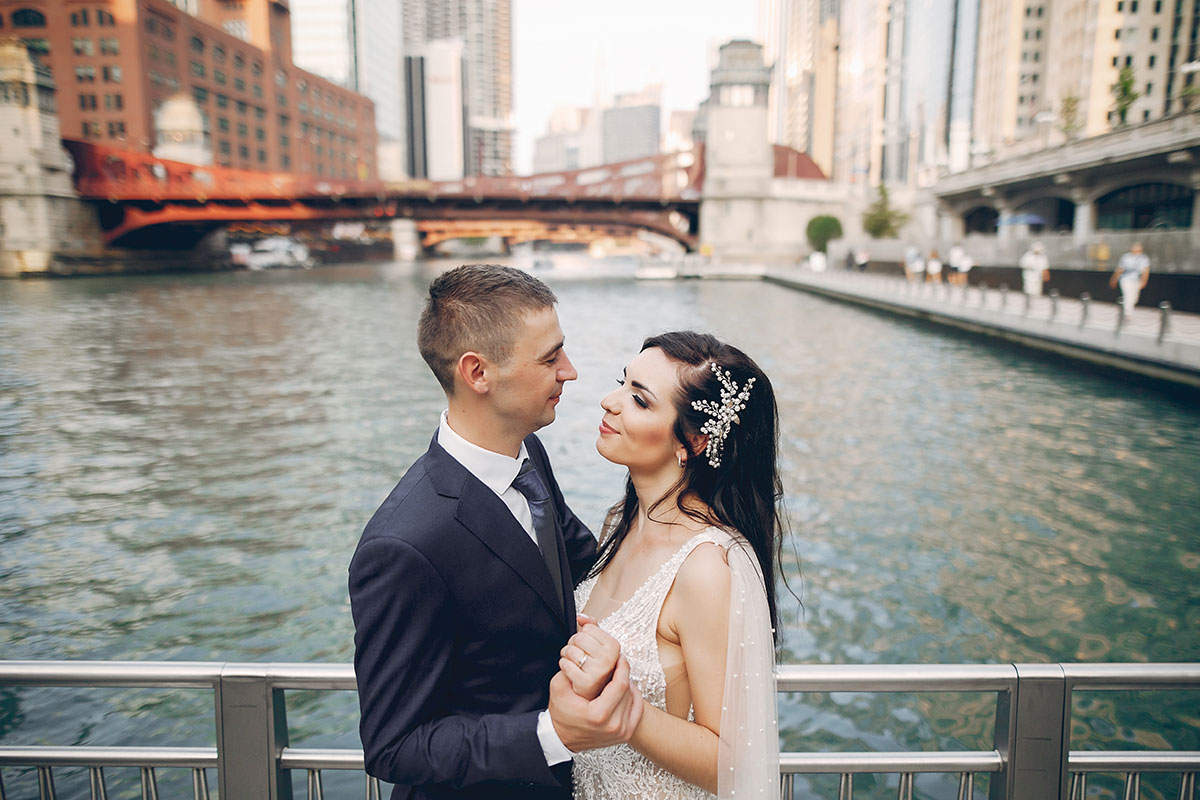
How to Get Married in Washington DC: A Complete Guide
How-To
Dreaming of saying your “I Do’s” in the nation’s capital city? From venue options and wedding costs to the best places for photos, here’s everything you need to know about getting married in Washington, DC.
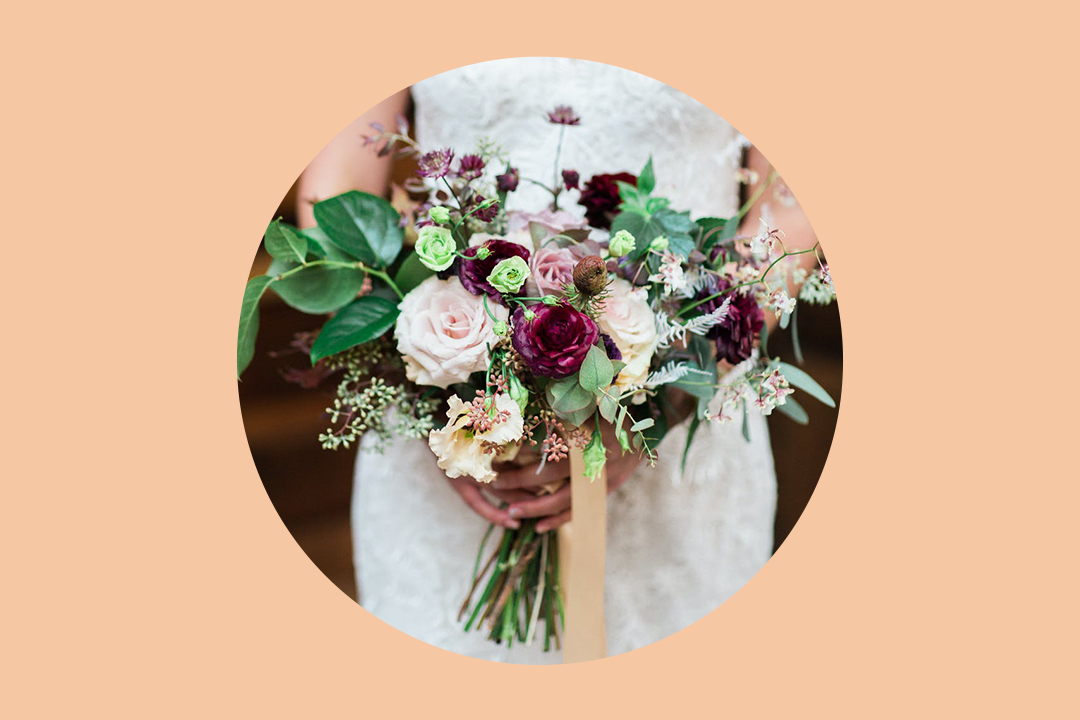
The Complete Guide of Wedding Flowers by Season
Wedding Style
Incorporating seasonal flowers into your wedding day gets you the best quality blooms for a lower price tag. This guide can help you save big on your floral budget, no matter what time of year you plan to tie the knot.
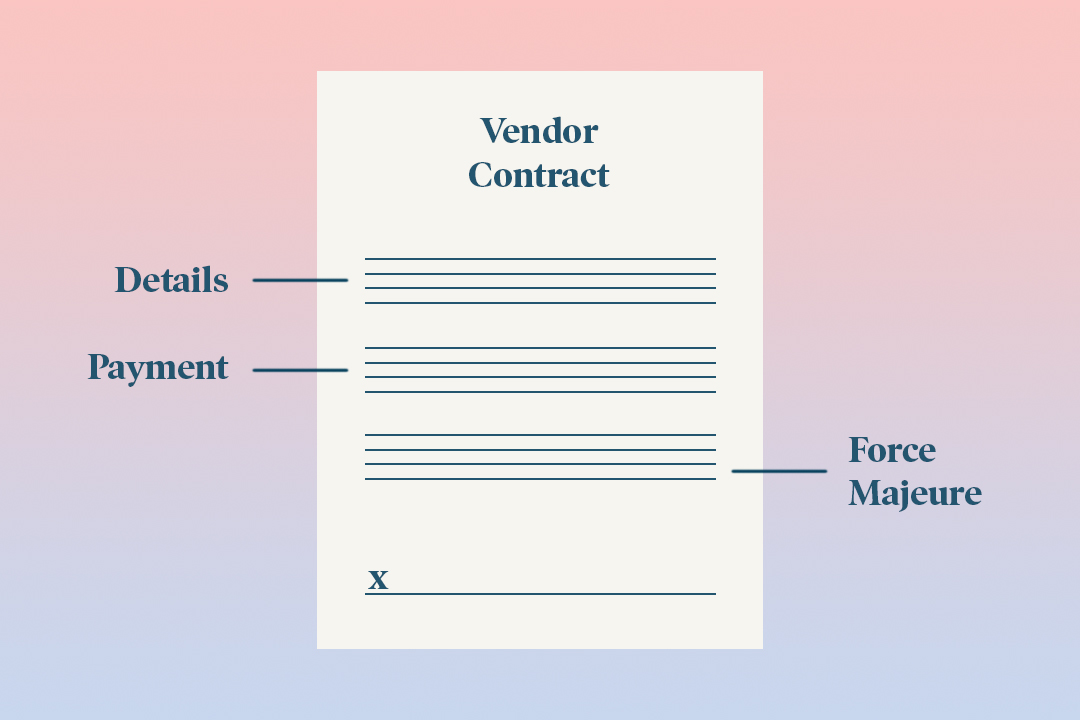
What to Look for in a Wedding Vendor Contract
List
Getting ready to sign a wedding vendor contract? Learn about the important details to look for with this complete guide.
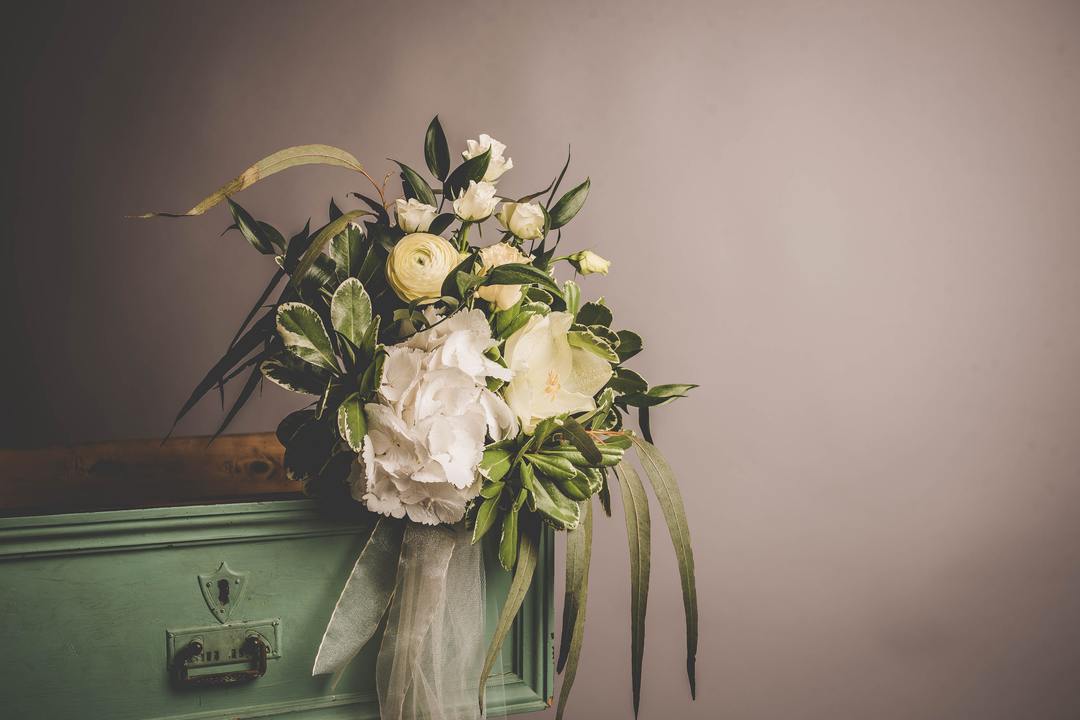
History of Wedding Vows
Advice
Learn about the history of wedding vows and other important information from the experts at Zola. Read on to find out more.
Featured
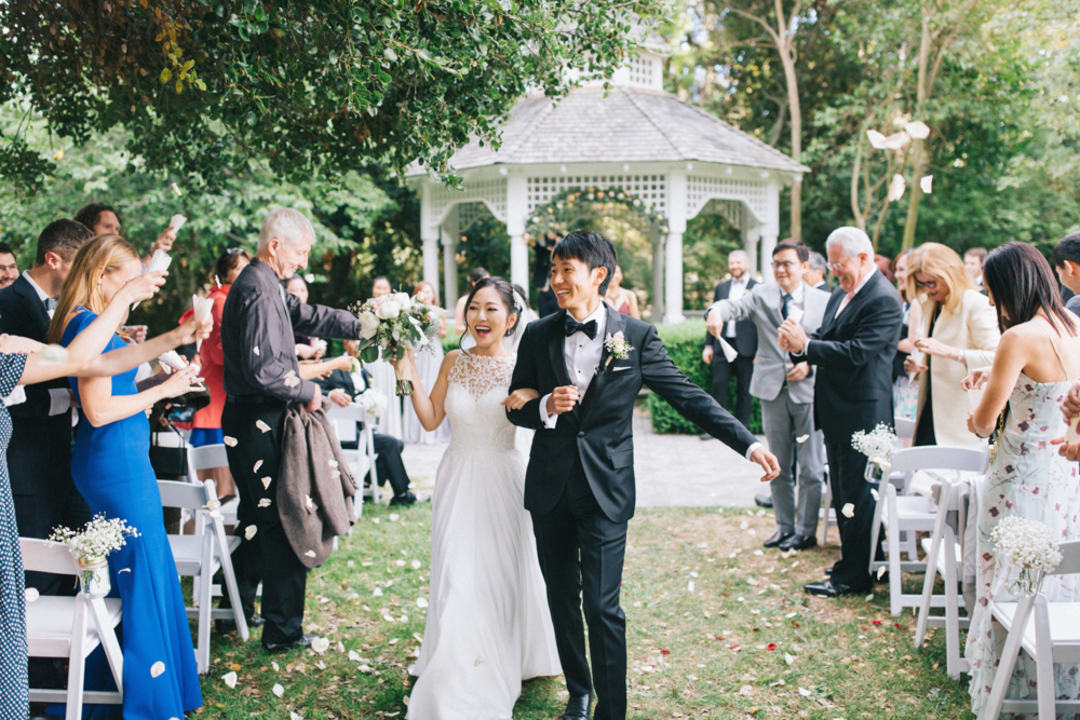
Most Popular Types of Wedding Venues
Venues
Finding the perfect wedding venue can be a challenge. We outlined a few popular types of wedding venues to help you find one that's right for you.
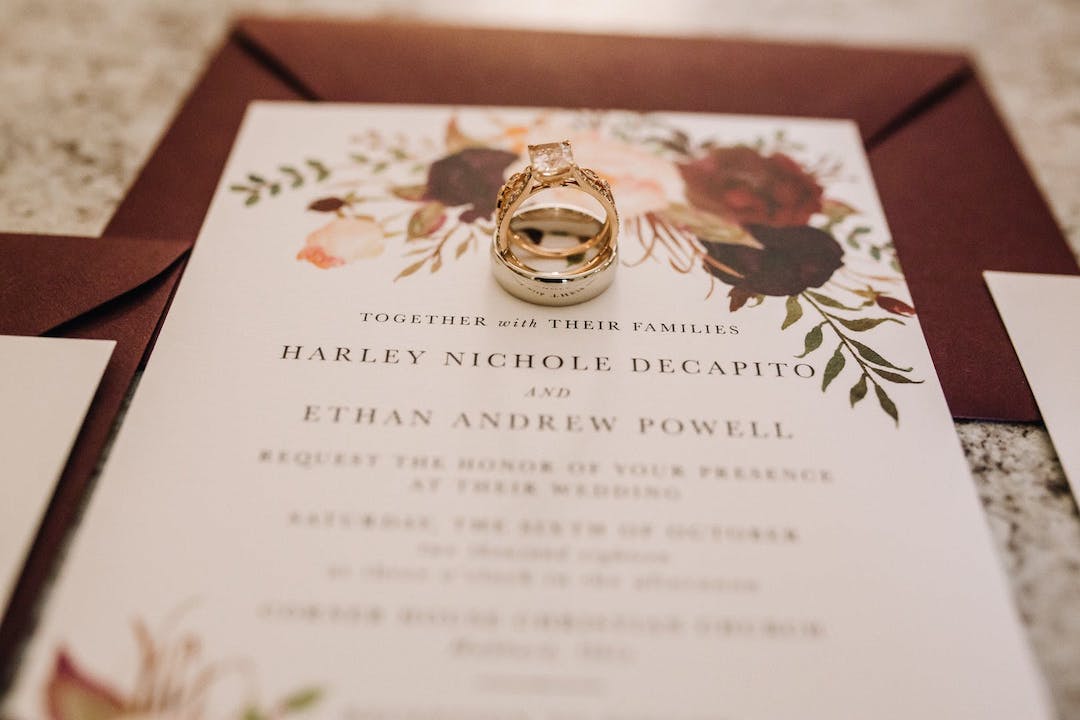
12 Rustic Wedding Invitations Ideas to Inspire You
Inspiration
Rustic weddings make the natural feel new again. Whether you’re opting for hand-drawn florals or festival prints, here are some ideas for rustic wedding invitations.
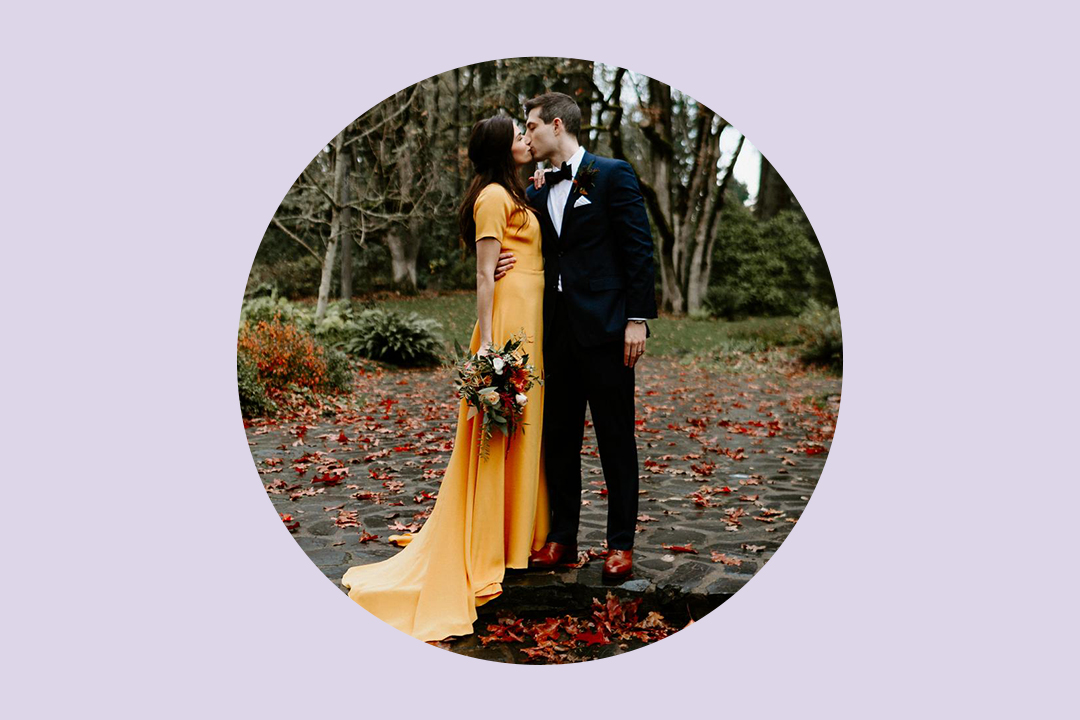
25 Outdoor Wedding Ideas for Fall We Can’t Get Enough Of
Wedding Style
Get creative with these fall wedding ideas for the outdoor celebration of your dreams! See our favorite 25 wedding ideas inspired by autumn here.

Simple Wedding Dresses That Are Elegant and Timeless
Inspiration
Want your wedding dress to stand the test of time? You can't go wrong with a simple gown. Check out Zola's guide to beautiful, simple wedding dresses.
- Expert advice/
- Wedding planning 101/
- Legal/
- Virginia Marriage Laws
Find even more wedding ideas, inspo, tips, and tricks
We’ve got wedding planning advice on everything from save the dates to wedding cakes.
